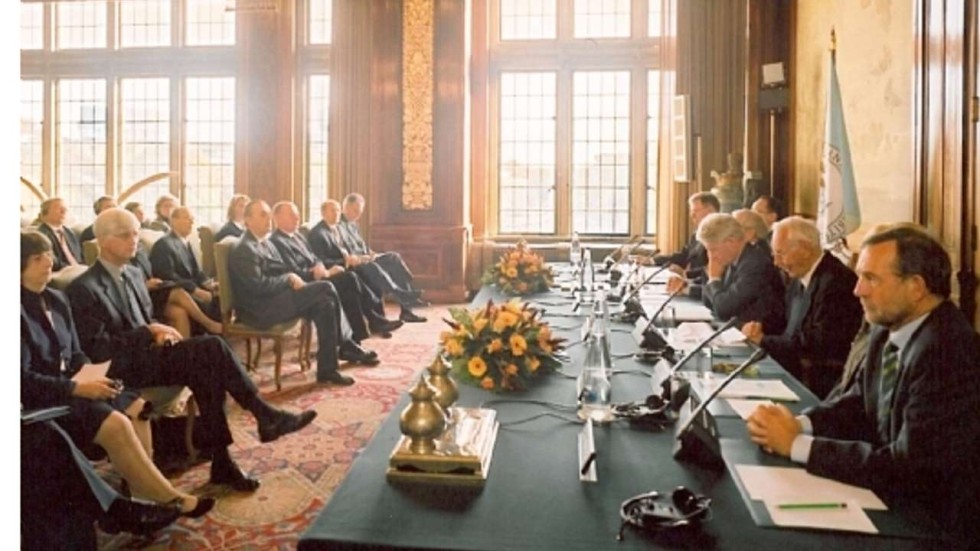
America’s Dead Loss in the South China Sea Arbitration Case
First of all, the word “arbitration” is incorrect: this word is unfavorable and violates international law. The situation with the South China Sea issue is complicated and has already touched upon controversies of territory, sovereignty and rights of the sea. These issues are fundamentally not within the jurisdiction of international courts. Even though the Philippines proposed international arbitration, it needed to obtain China’s permission and approval. Yet, as soon as this case began, China insisted that it would adhere to the “Four No’s”: China “will not accept, will not participate, will not recognize and will not implement” any result from the case. This position caused the “arbitration” case to lose its legitimacy. Acting as a black hand behind the scenes, the U.S. insisted on having its own way and pushed an “arbitration” outcome that is harmful to China. Anyone with eyes can see that this was all done by the Americans. So who has really violated international law? Of course it is the United States, not China. America’s consistent trick is to raise up the banner of “international law” when it is advantageous. But when it isn’t, the U.S. treads on international law and continues on its way with complete disregard for it .
Second, ASEAN has made no statement. The ten countries of ASEAN have serious differences. Even though a few countries are making a clamor, it has not amounted to anything. These ASEAN nations have not yet reached a unanimous decision on the outcome of the “arbitration.” The United States’ conspiracy to urge ASEAN to publish a statement has been in vain. This can’t help but be a loud and clear slap to America’s face. According to a report, the U.S. once again wants to send a VIP to ASEAN to lobby. I believe they will inevitably succeed, despite their apparent setbacks.
Third, the countries involved with the Philippines are keeping a low profile. Originally, the U.S. was just using the Philippines as a tool. After the “arbitration” decision came out, the U.S. urged the Philippines to make unbridled exaggerations while the U.S. sang the same tune and tried to set off big waves in the international arena. However, the U.S. was very disappointed when the Philippines did the exact opposite. President Duterte has announced that he will be sending the former president, Fidel Ramos, to visit China and engage in talks on the issue of the South China Sea dispute. This undoubtedly poured a ladle of cold water on the feverish heads of the Americans, causing them to soberly recognize that they will have a hard time getting away with their conspiracy. Despite reinstating negotiations, China and the Philippines still have twists and turns ahead of them, but I believe that the Philippines has already earnestly taken stock of the situation and, after weighing the pros and cons, will mend its ways, restring its bow and return to the correct path, all for the benefit of the common people.
Fourth, international public opinion has not been favorable toward the U.S. After the results of the “arbitration” came out, there remained 90 countries and 230 different political parties throughout the world that supported China’s standpoint on the South China Sea, with the widespread belief that the Americans manufactured this issue. America, always considering itself the “international judge,” is having a hard time plugging the holes in its story; so much so that many American scholars believe that the Philippines unilaterally proposing arbitration in the South China Sea was illegal under international law. The famous American lawyer, Bruce Fein, bluntly said that U.S. policy in the South China Sea embodies “dangerous imperialist thinking.”* Furthermore, as the Asia-Europe Meeting came to a close last week, Japanese Prime Minister Shinzo Abe leaped up and tried in vain to stuff the South China Sea arbitration case into the joint statement, but he was given the cold shoulder and was unable to prevail. This was a blow to Abe, which forced him to wake up and face reality.
Fifth, the South China Sea has not been what the U.S. expected, which has forced America to eat its own bitter fruit. The U.S. has sent fighter aircraft and warships to the South China Sea, infringing upon China's territorial sovereignty. Not only has the U.S. been unable to protect its “freedom of navigation,” it has started a dangerous militarization precedent, disrupting the once clear water of the calm pond. And not only is the U.S. unable to control the South China Sea, it has also caused tense unrest in the region, which directly affects America’s normal relations and trade with countries in the area. Finally, the U.S. has been unable to contain China and has instead aroused the passionate patriotism of 1.3 billion Chinese citizens, thereby driving them to even greater efforts to innovate and break new ground, to work energetically for their nation’s prosperity and to strive for establishing a society in which the material needs of the citizens are met even sooner.
“A wise man submits to his circumstances.”** The American people ought to wake up and quit falling into the same trap of hurting themselves whilst trying to attack others!
The author is a former vice president of the Chinese People’s Institute of Foreign Affairs, former ambassador to the United Arab Emirates, former ambassador to Jordan and a Senior Fellow at the China Institute of International Studies.
*Editor's note: This quote, accurately translated, could not be verified.
**Editor’s note: This quote could not be sourced and appears to be a Chinese idiom.


